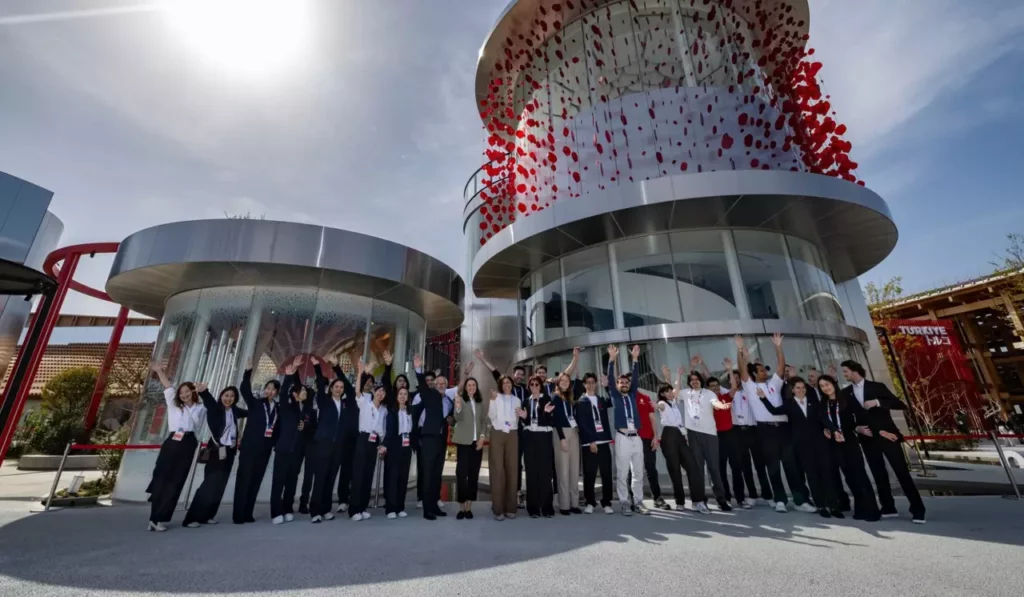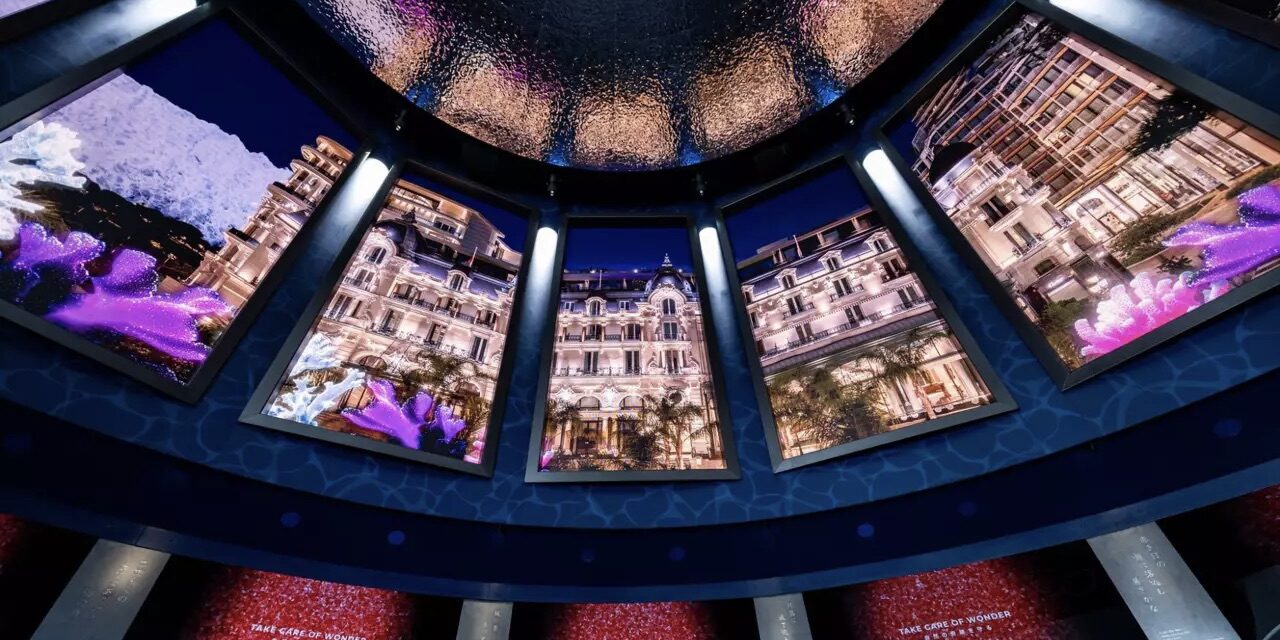In the shimmering sprawl of Osaka Bay, Monaco has landed on the world stage with a pavilion that’s part gallery, part garden, and part immersive dream. The curtain lifted on Expo 2025 this week, and among the 160 nations vying for attention, the Principality’s display stands out — not for its size, but for its ambition.
Situated in the “Connecting Lives” zone on the artificial island of Yumeshima, the Monaco Pavilion doesn’t merely talk about the future — it steps into it. Crafted around a multisensory experience, the space plunges visitors into the Principality’s most pressing concerns and proudest assets: ocean conservation, cultural heritage, and a delicate balance between luxury and sustainability.
Spearheading the daily life of the pavilion is a handpicked group of 13 Monégasque youths, aged 21 to 25, who will serve as the face of Monaco throughout the six-month run.

Inside, the exhibit builds to a crescendo in a cavernous hall lined with towering animated walls, mimicking an undersea voyage that blurs the line between art installation and environmental call to arms. This visual symphony underscores Monaco’s role as both a haven for innovation and a loud voice in globalf ecological advocacy.
The exterior, however, tells its own story. Architects Jérôme Hein and Nicolas Fedoroff have crafted a living sculpture of sorts — a garden that weds Japanese aesthetic precision with Mediterranean soul. Olive trees, native flowers, and a serpentine path inspired by the Princess Grace Rose Garden invite wandering as much as wondering.
The choice of Monaco’s theme, Take Care of Wonder, is both subtle and subversive — an invitation to see beauty not as a luxury, but as a responsibility. Critics might raise eyebrows at the environmental toll of a sprawling expo campus, but organisers have insisted on a long-term vision: the entire site is to be transformed into a hospitality and leisure complex once the curtain falls.
For those watching from afar, the pavilion’s digital twin is just a scan away. A QR code, distributed via social channels, offers a remote walkthrough of the full experience — no passport required.
With over eight million tickets sold ahead of opening day and tens of millions more expected by the event’s close in October, Monaco’s offering is not just a showcase of national pride, it’s a bold experiment in how small nations can speak loudly on the global stage.

